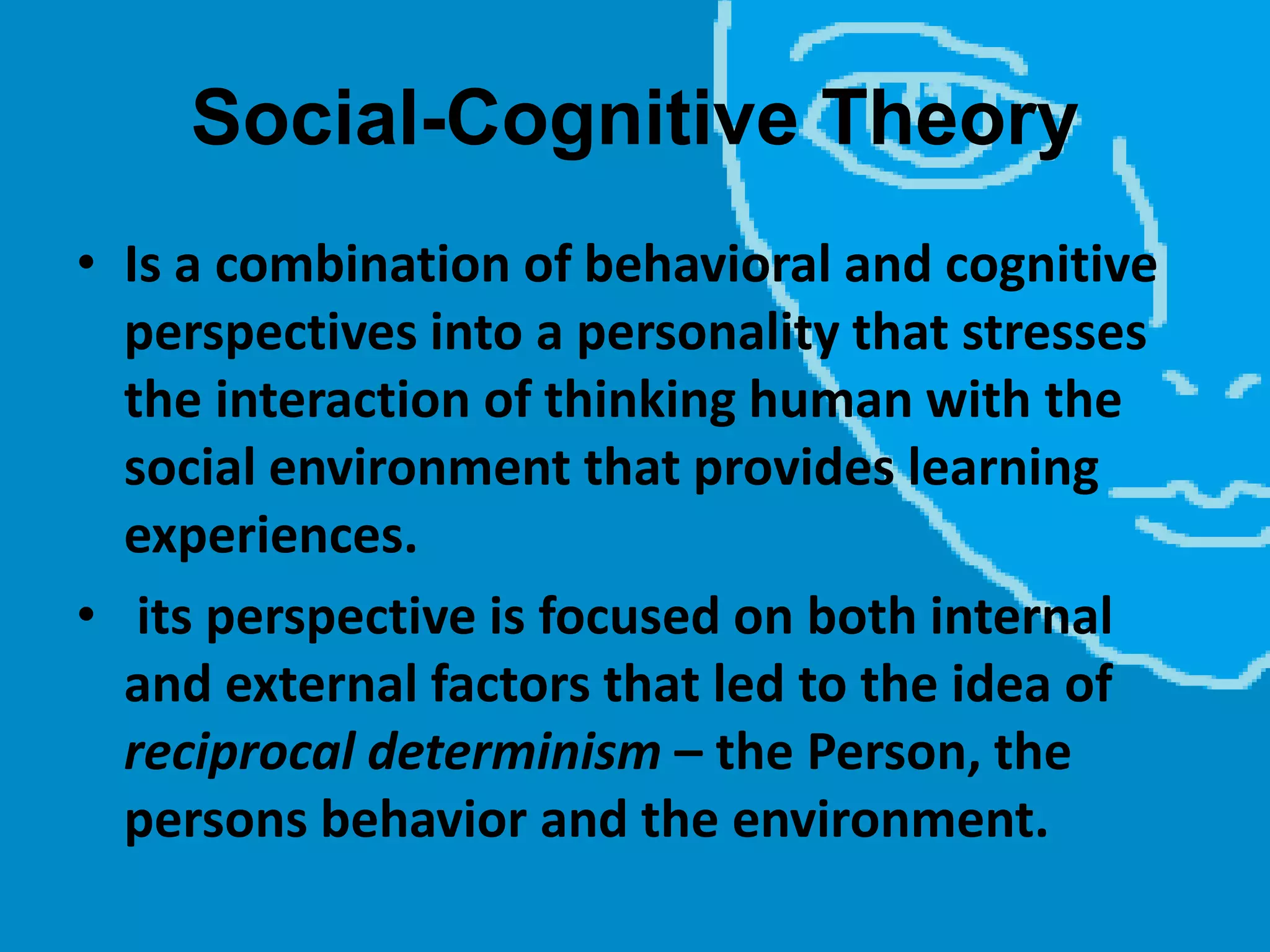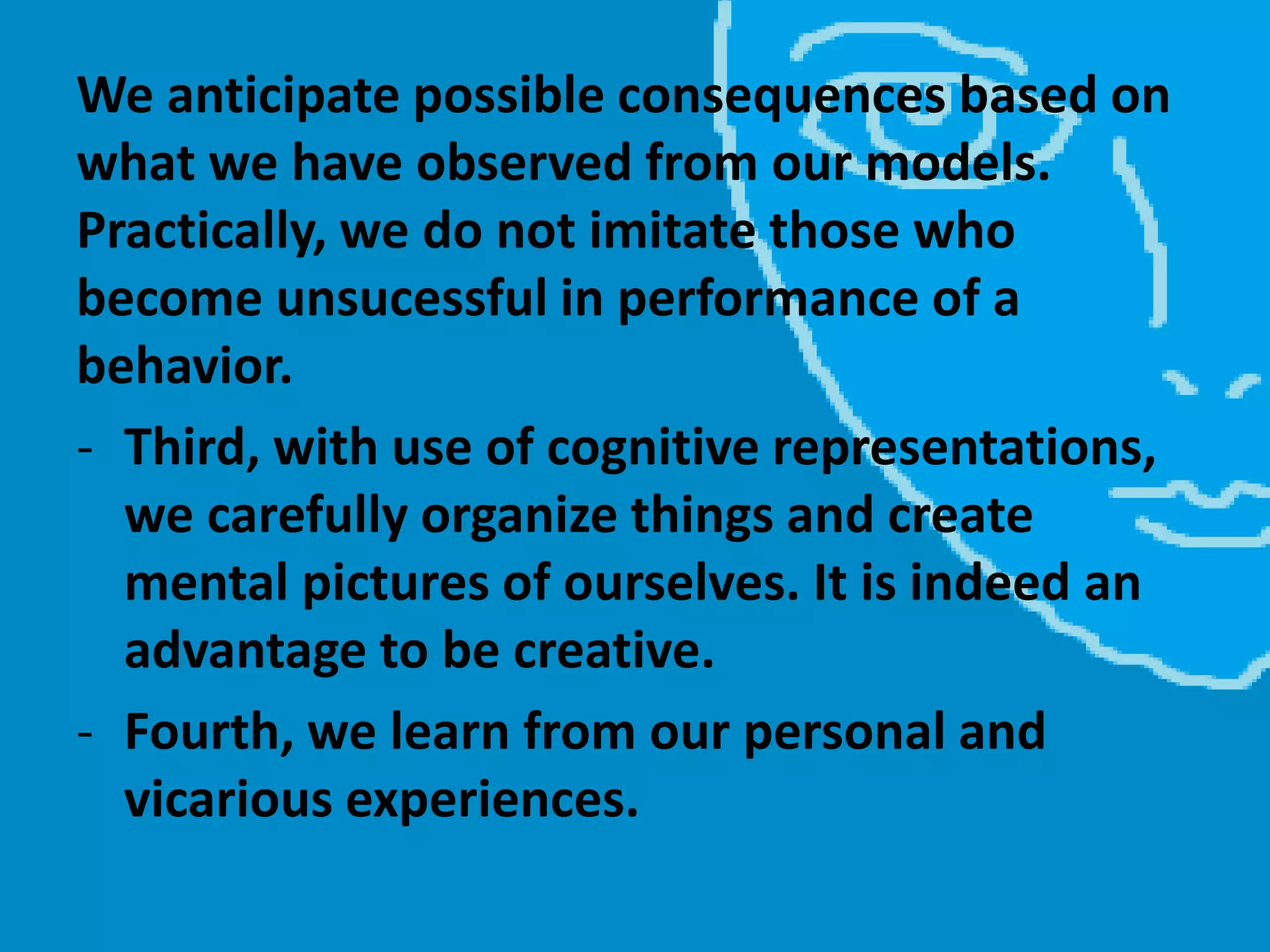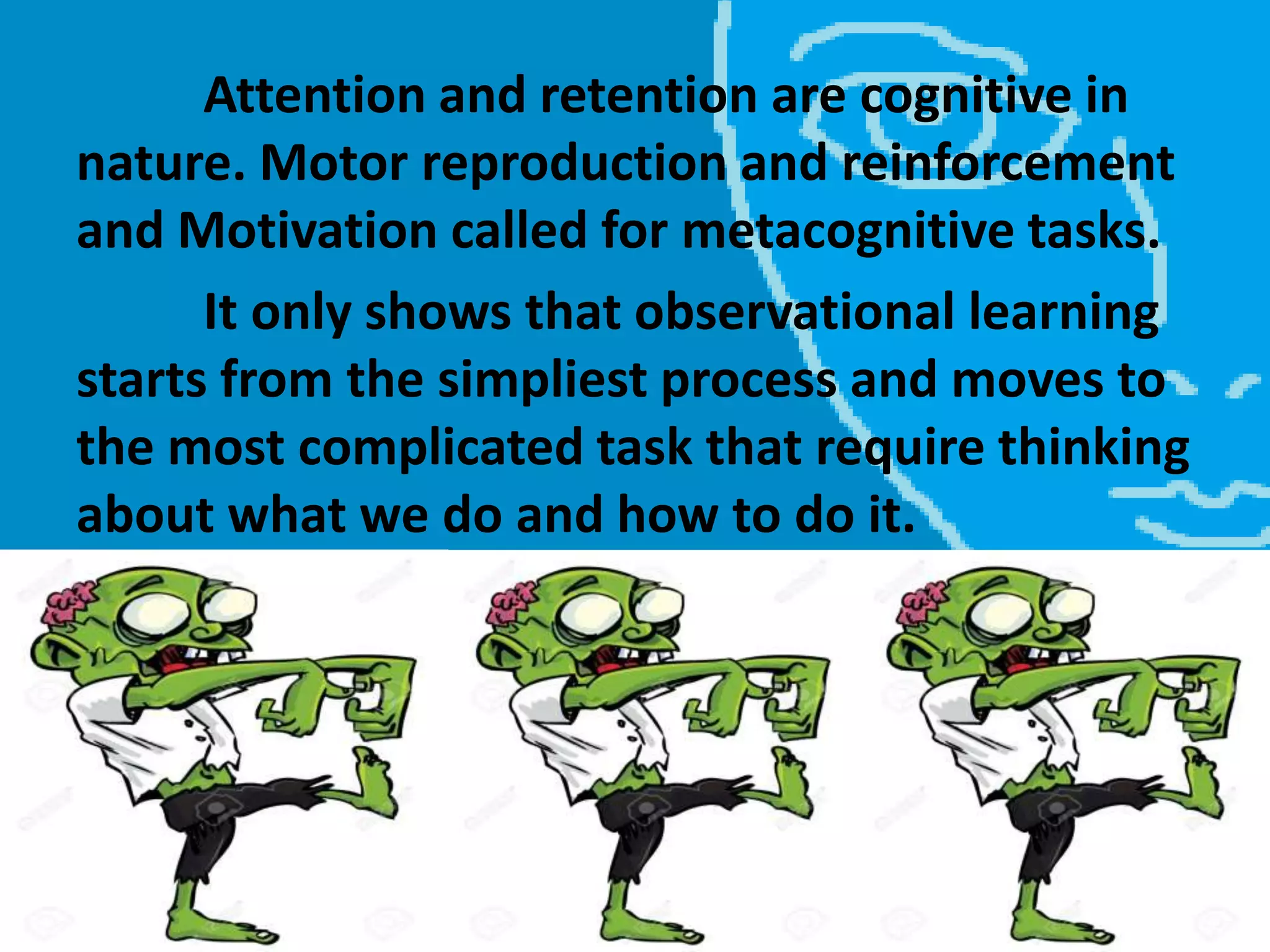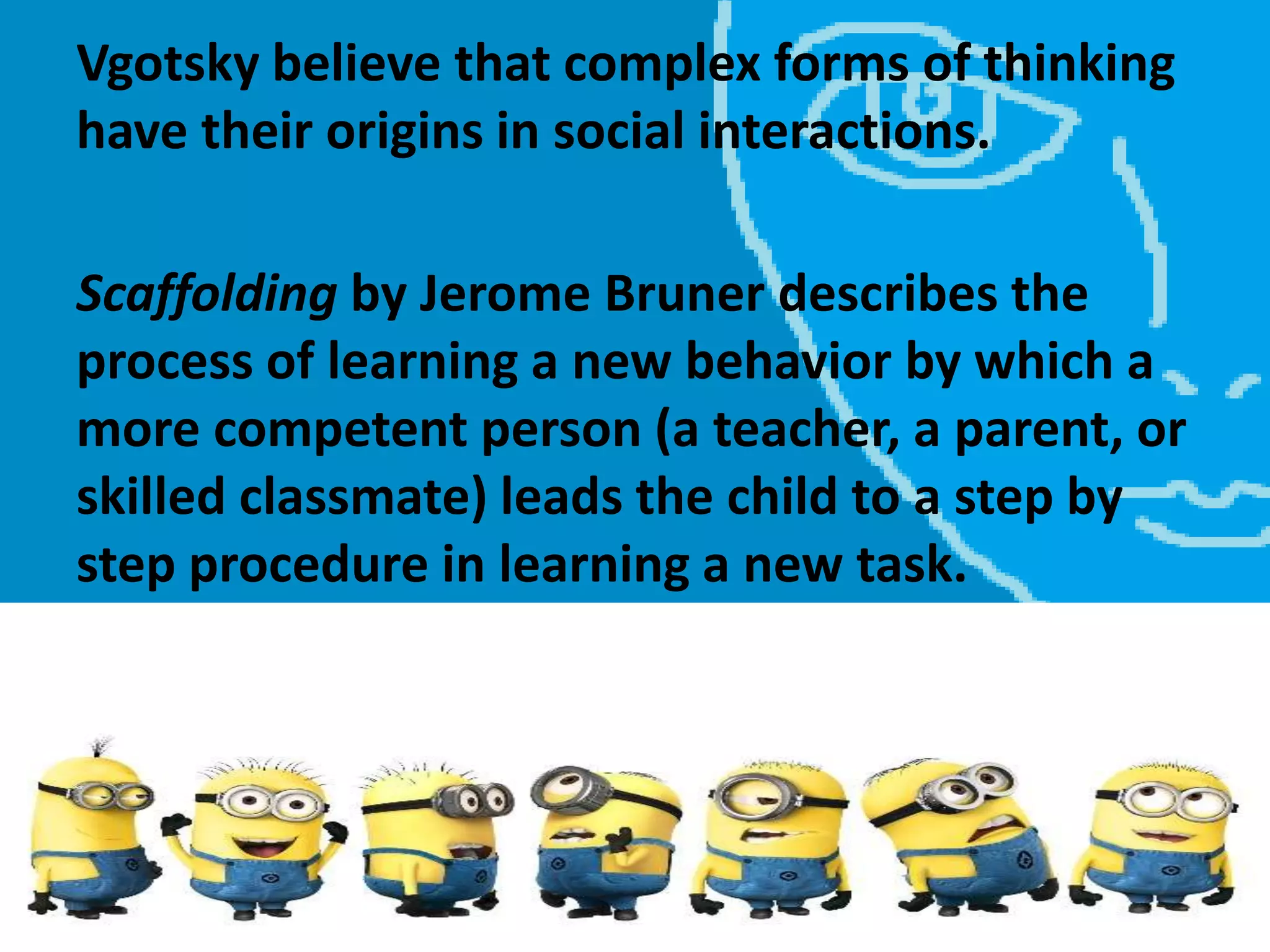Social-Cognitive Theory proposes that learning occurs through observation and modeling of others within a social context. It emphasizes reciprocal determinism between personal factors, environmental influences, and human behavior. Key aspects include observational learning, where people observe and imitate models; cognitive processes like attention and retention that enable learning; and reinforcement that strengthens modeled behaviors. Social constructivism similarly posits that cognitive development occurs through social interactions and collaboration with others.

































